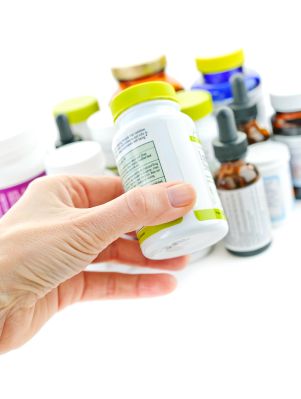 Homeopathy is a medical philosophy that essentially believes your body is the best weapon to fight disease.
Homeopathy is a medical philosophy that essentially believes your body is the best weapon to fight disease.
Homeopathic medicine is based on the idea that “like cures like,” meaning if something causes a symptom in your body, if you take a diluted form, it will boost your body’s ability to fight it. Typically these remedies include a plant or a mineral in a tiny amount.
Homeopathy has become a big business in the United States. Adults spent almost $3 billion on homeopathic medicines in 2007, according to the National Center for Complementary and Integrative Heatlh (NCCIH), with an estimated 4 million adults and 910,000 children relying on these natural homeopathic remedies.
Many drugs labeled as homeopathic are marketed in major retail stores as natural, safe and effective alternatives to prescription and over-the-counter medications, according to the FDA.
Science has found little evidence that homeopathy works, and its tenets run counter to basic science, critics contend.
Homeopathy and the FDA
The original Food, Drug and Cosmetics Act (FD&C Act) passed in 1938 authorized the FDA to demand evidence of safety for new drugs, issue standards for food, and conduct factory inspections.
The Kefauver-Harris Amendments of 1962 strengthened the rules for drug safety and, for the first time, required manufacturers to prove their drugs’ effectiveness. In 1992, the FD&C Act was amended again to require the drug industry to bear part of the considerable expense of the drug approval process.
Under the FD&C Act, the definition of “drug” includes:
- Articles recognized in the official United States Pharmacopoeia (USP), official Homoeopathic Pharmacopoeia of the United States (HPUS)
- Articles intended for use in the diagnosis, cure, mitigation, treatment, or prevention of disease in man or other animals
- Articles (other than food) intended to affect the structure or any function of the body of man or other animals.
A homeopathic drug can fall within any of these categories. It can also fall within the definition of a “biologic” under a different federal statute making these products subject to FDA regulation.
Homeopathic Products Marketing Regulations
Since June 9, 1990, a number of changes in status of homeopathic remedies have taken place. Numerous remedies that were once sold as over-the-counter have moved to prescription status.
This is due to the publication of the FDA Compliance Policy Guide titled “Conditions Under Which Homeopathic Drugs May Be Marketed,” along with the Homœopathic Pharmacopœia of the United States (HPUS). These documents form the basis for the regulation of homeopathic drugs in the United States.
On June 9, 1988 the first installment of the new edition of the HPUS (also called the Homœopathic Pharmacopœia Revision Service or HPRS) was published. On the same date, FDA’s Compliance Policy Guide relating to the marketing of homeopathic medicines was published. Both documents had two-year phase-in dates. Thus they became “effective” in June, 1990.
Additionally, homeopathic drug manufacturers are deterred from submitting new drug applications to the FDA. Their products are exempt from good manufacturing practice requirements related to expiration dating and from finished product testing for identity and strength.
Not all homeopathic remedies are exempt from FDA regulations. For instance, if a homeopathic drug claims to be a cure for cancer, it can only be sold by prescription. Over-the-counter homeopathic medications to treat “self-limiting conditions,” such as headaches, colds and minor health problems, can be sold without a prescription.
According to the FDA, homeopathic drugs must be tested for scope of effect, manufactured, and labeled according to the Federal FD&C Act and the HPUS before they are considered official homeopathic drugs.
Official homeopathic drugs can be marketed according to their classification in the HPUS. They are not regulated under the Dietary Supplement Health and Education Act of 1994.
The FDA has issued several warning letters to homeopathic marketers over the past several years. The most common infraction was the sale of prescription homeopathic drugs over-the-counter.
Join a Free Homeopathy or Dietary Supplement Fraud Class Action Lawsuit Investigation
If you purchased a homeopathic or dietary supplement product that failed to perform as advertised, chances are you’ve been the victim of homeopathy or dietary supplement fraud. You may have a claim to seek compensation through a consumer protection class action lawsuit.
ATTORNEY ADVERTISING
Top Class Actions is a Proud Member of the American Bar Association
LEGAL INFORMATION IS NOT LEGAL ADVICE
Top Class Actions Legal Statement
©2008 – 2025 Top Class Actions® LLC
Various Trademarks held by their respective owners
This website is not intended for viewing or usage by European Union citizens.














